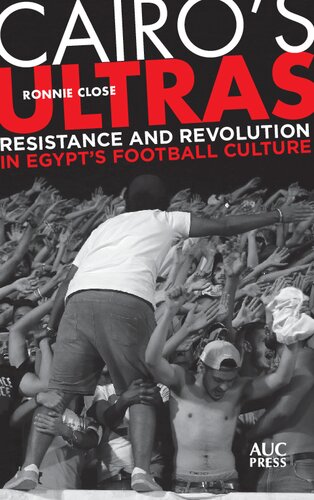

Most ebook files are in PDF format, so you can easily read them using various software such as Foxit Reader or directly on the Google Chrome browser.
Some ebook files are released by publishers in other formats such as .awz, .mobi, .epub, .fb2, etc. You may need to install specific software to read these formats on mobile/PC, such as Calibre.
Please read the tutorial at this link: https://ebookbell.com/faq
We offer FREE conversion to the popular formats you request; however, this may take some time. Therefore, right after payment, please email us, and we will try to provide the service as quickly as possible.
For some exceptional file formats or broken links (if any), please refrain from opening any disputes. Instead, email us first, and we will try to assist within a maximum of 6 hours.
EbookBell Team

4.7
86 reviewsThe history of Cairo s football fans is one of the most poignant narratives of the 25 January 2011 Egyptian uprising. The Ultras Al-Ahly and the Ultras White Knights fans, belonging to the two main teams, Al-Ahly F.C. and Zamalek F.C respectively, became embroiled in the street protests that brought down the Mubarak regime. In the violent turmoil since, the Ultras have been locked in a bitter conflict with the Egyptian security state. Tracing these social movements to explore their role in the uprising and the political dimension of soccer in Egypt, Ronnie Close provides a vivid, intimate sense of the Ultras' unique subculture.
Cairo's Ultras: Resistance and Revolution in Egypt's Football Culture explores how football communities offer ways of belonging and instill meaning in everyday life. Close asks us to rethink the labels 'fans' or 'hooligans' and what such terms might really mean. He argues that the role of the body is essential to understanding the cultural practices of the Cairo Ultras, and that the physicality of the stadium rituals and acerbic chants were key expressions that resonated with many Egyptians. Along the way, the book skewers media clichés and retraces revolutionary politics and social networks to consider the capacity of sport to emancipate through performances on the football terraces.